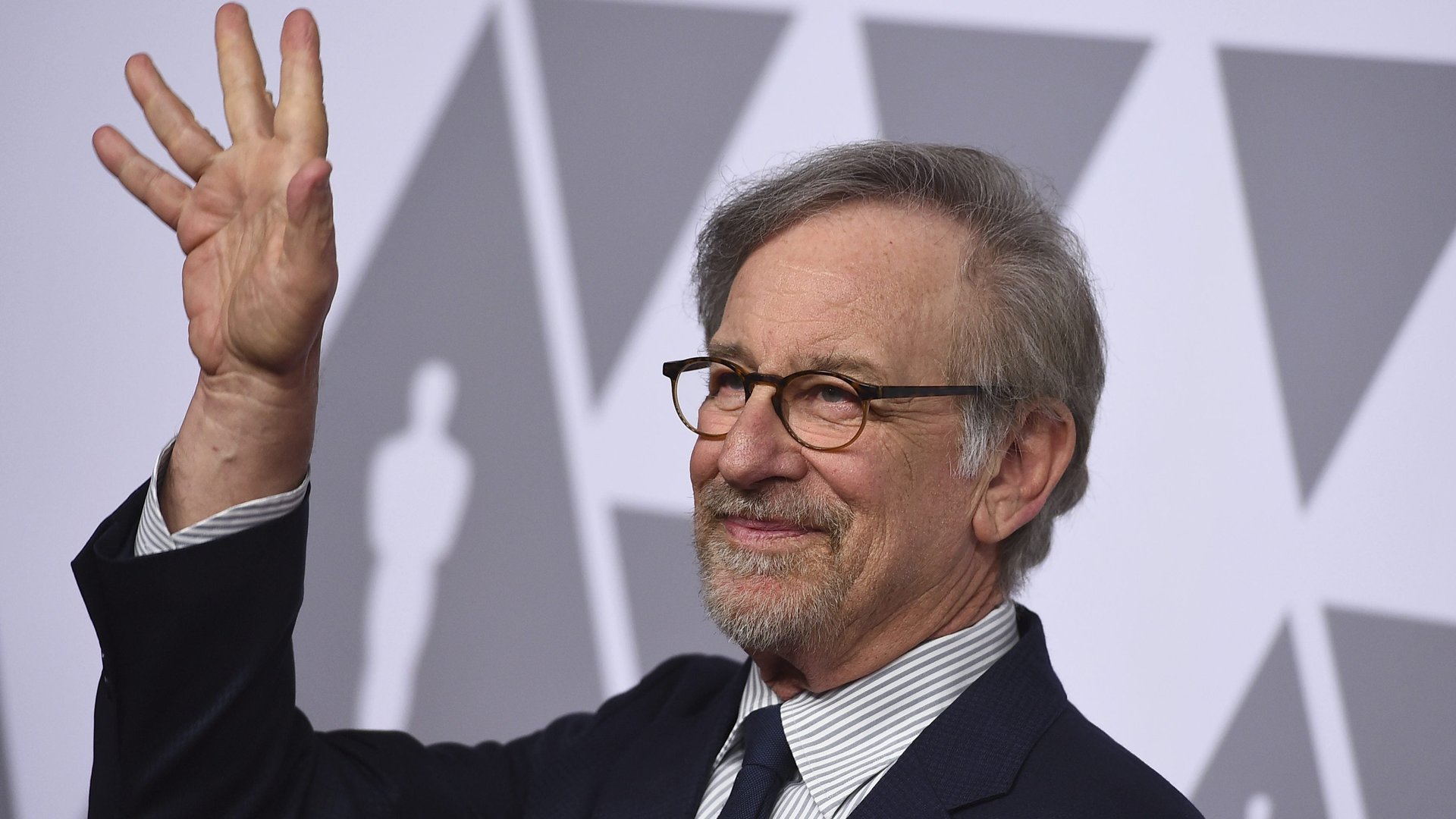Steven Spielberg explains why Netflix’s “TV movies” aren’t Oscar-worthy
Steven Spielberg’s virtual-reality romp Ready Player One is the kind of movie that’s made to be seen on the big screen. Its iconic director says that distinction ought to mean something in the age of streaming video.


Steven Spielberg’s virtual-reality romp Ready Player One is the kind of movie that’s made to be seen on the big screen. Its iconic director says that distinction ought to mean something in the age of streaming video.
Spielberg, a three-time Oscar winner, says that Netflix movies shouldn’t be eligible for the Academy Awards. The streaming-video service releases its movies online first and puts them out in select theaters, usually to qualify for awards. Spielberg told ITV News:
“Once you commit to a television format, you’re a TV movie. You certainly, if it’s a good show, deserve an Emmy, but not an Oscar… I don’t believe films that are just given token qualifications in a couple of theaters for less than a week should qualify for the Academy Award nomination.”
Netflix seems to be facing a backlash from film industry gatekeepers. A year after two Netflix films competed at Cannes, the renowned film festival also announced last week that the streaming service was barred from competition. Cannes previously said that starting in 2018, all competition films would need to receive theatrical runs in France, following an outcry from film purists over Netflix’s participation.
Spielberg’s remarks on Netflix reflect a traditional view of the relationship between quality and medium. During much of Spielberg’s career, which took off in the 1970s and 1980s, theatrical releases were the mark of a good director, while TV movies were seen as second-tier.
Spielberg concedes that TV is “greater today than it’s ever been in the history of TV.” The quality, budgets, and scope of productions on TV and streaming rival anything in theaters, as HBO, Netflix, and Amazon have demonstrated. Online platforms are also among the few purveyors of film willing to take risks on smaller and mid-sized movies, especially those without established IP, Spielberg acknowledges. It’s what’s led artists like Martin Scorsese, David Ayer, and David Fincher to streaming video. But Spielberg still thinks streaming-video productions should be judged separately.
He is not the first director to write off the streaming service. Christopher Nolan, one of cinema’s staunchest supporters, likened Netflix movies to straight-to-video releases, which he called a filmmaker’s “nightmare.”
Netflix has drawn attention recently for high-profile critical flops like Bright, The Cloverfield Paradox, and anything by Adam Sandler. But it also gained Academy Awards credibility for the documentaries 13th and Icarus, which won Netflix an Oscar, and Dee Rees’s historical drama Mudbound. 13th director Ava DuVernay, who also directed Disney’s latest theatrical release A Wrinkle in Time, has pointed out that Netflix films offer access to audiences who might not otherwise be able to see new releases.